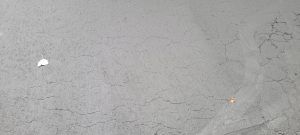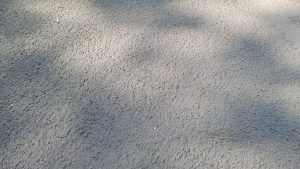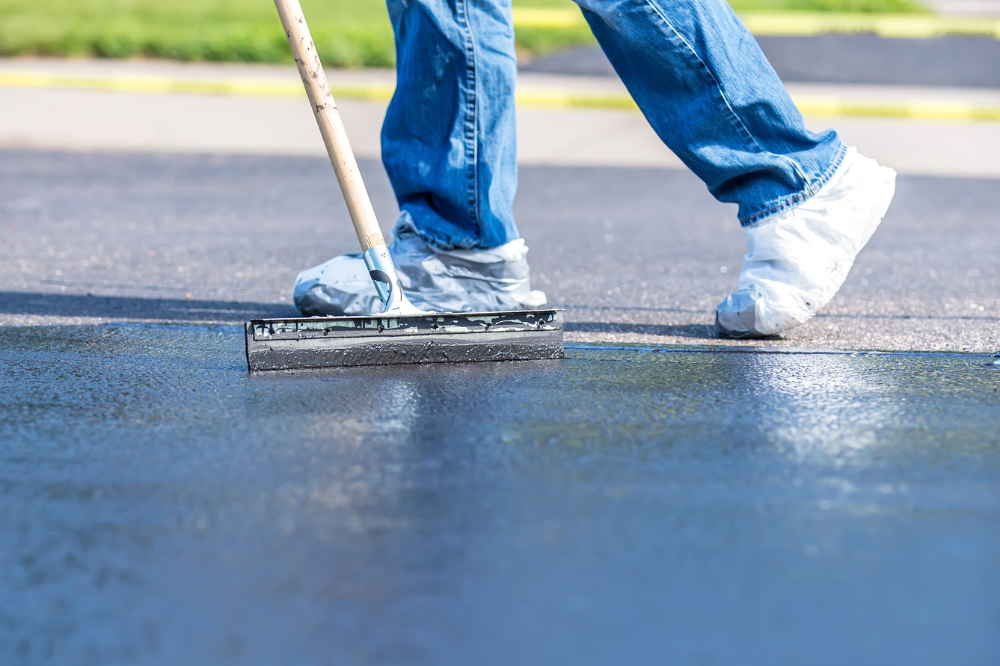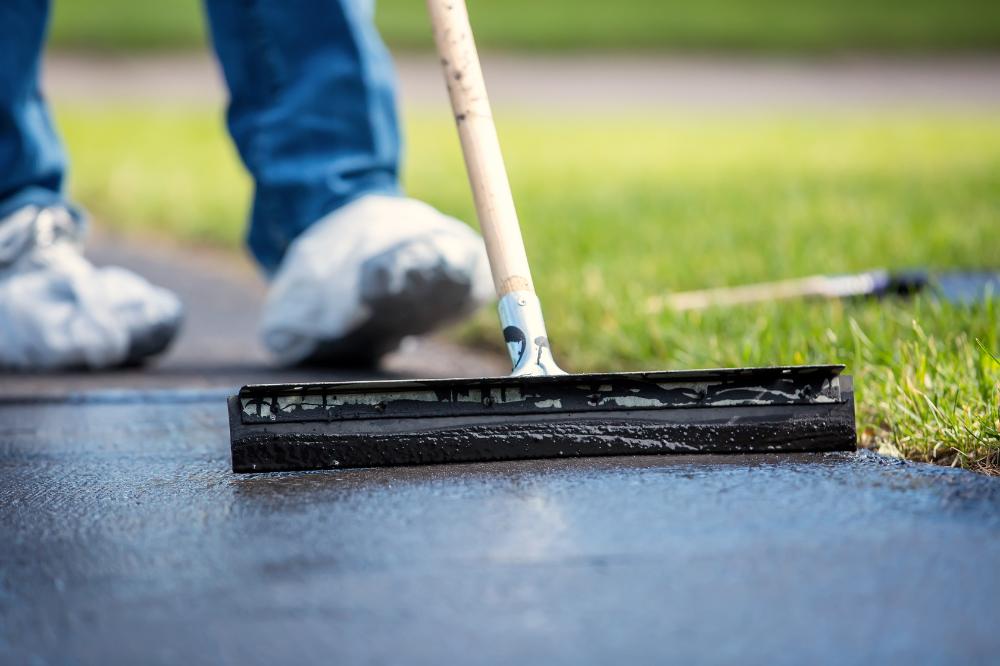What About Cracks?
Cracks are mostly caused by shifting of the ground. First we'll clean all cracks, then we'll seal larger (3/8' and up) cracks using a rubberized material heated to 380 degrees and after pouring that material into the crack, topping it with a black sand like material. For smaller cracks a very thick material is applied to help cover and stabilize those areas. How large the crack is will determine if you can see it after sealcoating (see below).
Additionally, In order for the crack material to remain flexible during cold months, it may even seem soft in hot months and you may even see some settling and/or reopening. All of this is normal and to be expected.

What are Surface Cracks?
Surface cracks are typically small fissures that appear in the asphalt surface. Crack sealers aren't an appropriate remedy. Our sealcoating will seal these areas but they can't be "filled" so the finish may not be smooth.
My Asphalt is Rough. Can You Smooth it Out?
Sealers protect, preserve and beautify and as such are designed to "soak into" and bond with the asphalt. It's not like icing a cake, the only remedy for a rough surface, low spot (bird bath) or other defect is patching or re-paving.




